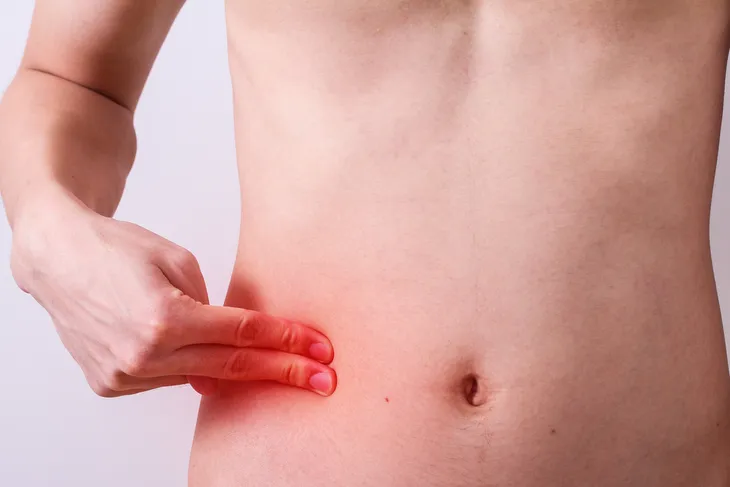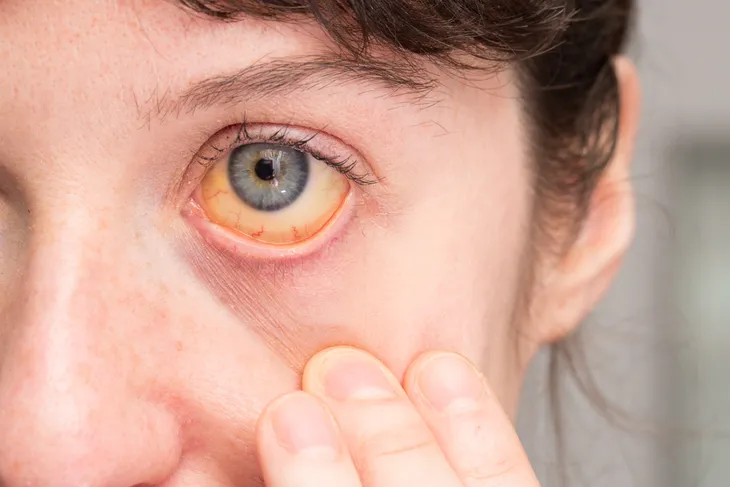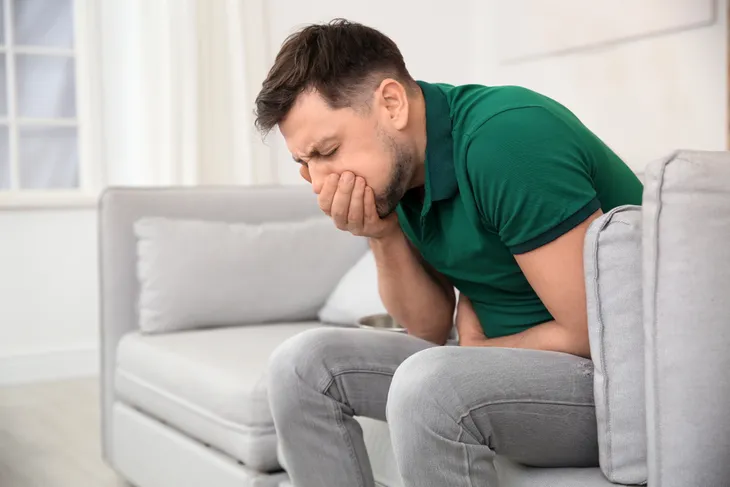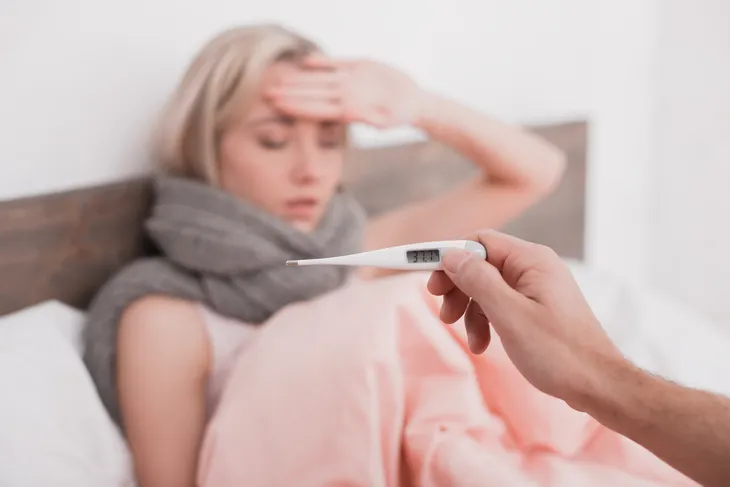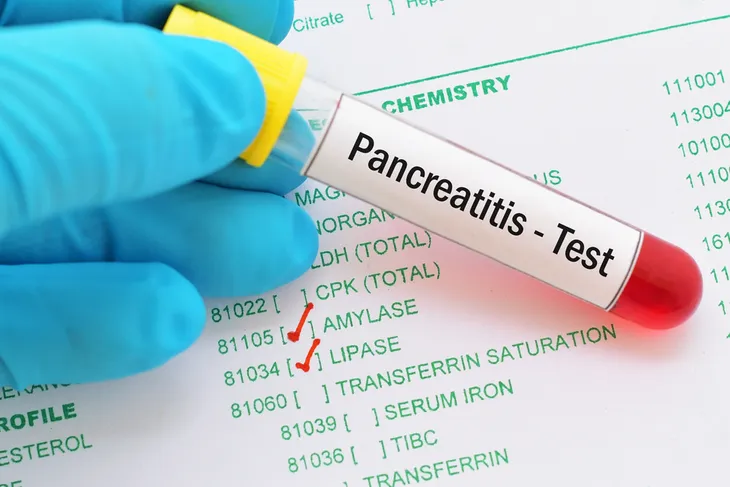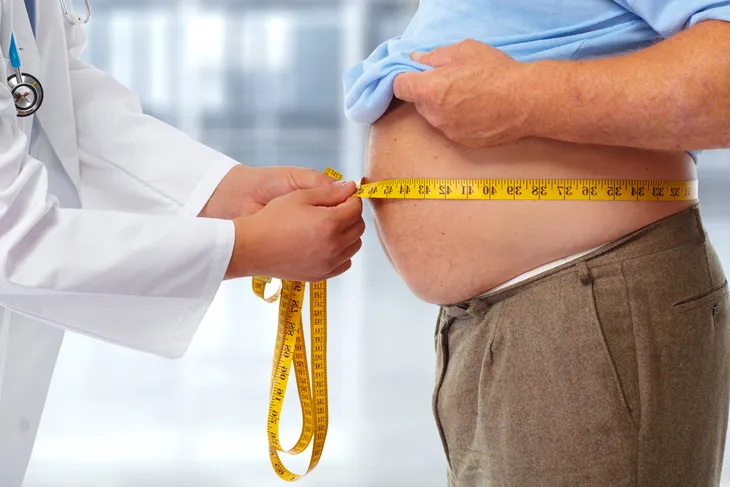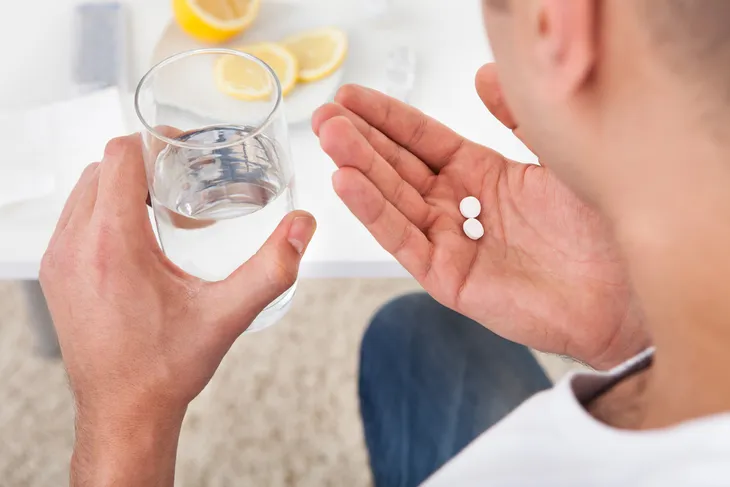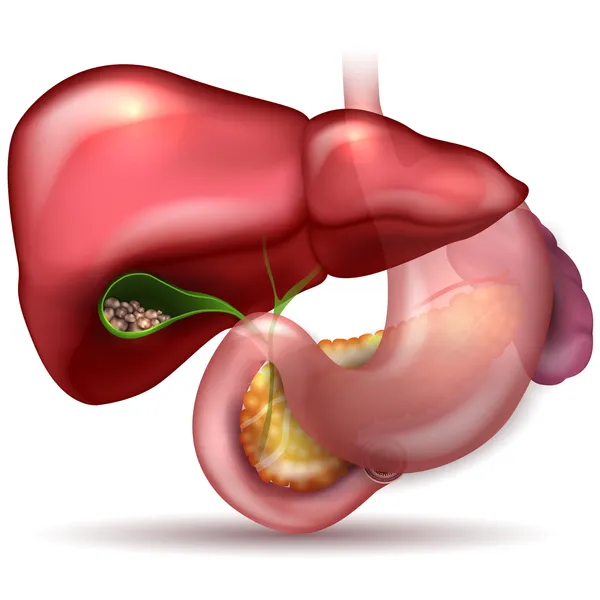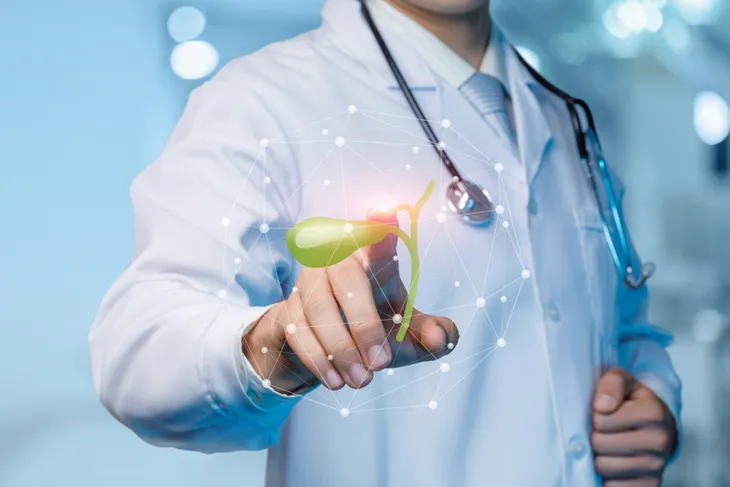If you’re having unexplained abdominal pain, it could be traced to a number of culprits, including gallstones, which are crystalline masses in the bile ducts composed of cholesterol, salts and other substances. Even if you don’t think you’re a candidate for gallstones because you’re still young, it’s not something you should write off your list of suspects.
There are a number of telltale symptoms that can help your doctor separate gallstone pain from other sources of upper abdominal pain, so here are 12 signs to keep track of to share with your physician…
Pain in the Abdomen
First and foremost, the telltale signs of gallstones are a pain in the abdomen that comes and goes, especially after fatty meals, notes Women’s Health magazine.
“Gallstone pain is described as an intense, dull discomfort located in the right upper quadrant of the belly,” notes the source. Additionally, “The pain may also radiate to the back and right shoulder in some cases.” This is because your gallbladder is trying to push a stone “the size of a golf ball” through an opening “the size of a straw,” says the source. On the flipside, some people may have gallstones and not even know it.
Yellowing of the Skin
If you have a blockage of the bile duct, which is the path of bile to the small intestines, the buildup will increase the concentration of something called bilirubin in the gallbladder. This yellowish substance is what your liver usually turns into bile, explains Women’s Health.
As you may have guessed by now, this leads to a condition called jaundice, which is a yellowing of the skin. “As bilirubin concentrations increase in the bloodstream, it starts to deposit in the skin, turning it yellow,” explains the source. Even the whites of your eyes can take on a yellowish hue.
Feeling Sick or Vomiting
It’s no surprise that searing pain in your abdomen can make you feel like throwing up, and gallstone pain is no exception. It can be easy to pass off the pain as muscle cramping from exercising or another problem like heartburn, explains Health.com.
However, the difference may be that the pain occurs shortly after eating when your gallbladder kicks into action. The source says nausea is not as common a symptom as abdominal pain, but if “there’s significant nausea or vomiting, those are signs that you should probably go to a physician, urgent care, or the emergency room.”
Being Feverish
Gallstones are one of the causes of an inflamed gallbladder, medically known as cholecystitis, according to EveryDayHealth.com. “An episode of inflammation can last for several hours, or even a few days. Fever is not unusual,” explains the source.
The source adds other reasons for an inflamed gallbladder may include excessive alcohol use, infections, or tumors that block bile ducts (although gallstones are the most common culprit). “Suspected episodes of cholecystitis always require medical attention, particularly if you have a fever,” adds the source.
Being Diagnosed with Pancreatitis
A problem with your pancreas may be traced back to your gallbladder, notes Health.com. The source says the liver is situated next to the pancreas, which “discharges digestive enzymes into the same area of the digestive tract as bile.” The two ducts meet up near the intestine, meaning a problem in one can affect the other.
A gallstone may break free from the gallbladder and get lodged in the pancreatic duct, which will cause inflammation and the telltale abdominal pain. If you have pancreatitis, which is inflammation of the pancreas, you might also have a rapid pulse and a fever.
Being Obese or Dieting Too Hard
If you’ve dropped a lot of pounds quickly or if you’re considered obese, gallstones may result, according to EveryDayHealth.com. It’s not that gallstones themselves cause you to lose weight – however, going on a crash diet that sheds pounds rapidly can put you at higher risk of developing stones.
Obesity alters the balance of cholesterol, lecithin, and bile acids in the gallbladder, and carrying extra weight can make it tougher for the gallbladder to empty, setting the stage for cholesterol-rich bile to harden. Meanwhile, losing more than 3-pounds per week can also upset the balance of your gallbladder and make it tougher to empty, adds the source. Surgery to limit the capacity of the stomach (bariatric surgery) can also lead to rapid weight loss and consequently cause gallstones.
Changes in Urine or Stool
If you’ve been experiencing symptoms of gallstones, you may want to look at what’s coming out of your body, as unpleasant as that may be for some. Self.com says changes in the color of urine and/or stool may be a sign of an untreated gallbladder attack.
More specifically, the source says your urine may appear “tea-like,” while your poop may appear to be “strangely light” in color. If you notice these signs and have other symptoms, seek medical attention. In fact, you may want to consult a doctor even if you don’t have other symptoms.
Standard Pain Meds Don’t Help
If you have chronic pain in your midsection that doesn’t go away at all with over-the-counter pain medications (e.g., acetaminophen [Tylenol] or ibuprofen [Advil]), you may have further proof you’re dealing with a gallbladder problem, according to Health.com.
Another indicator is that you don’t experience any relief from abdominal pain after passing gas. This is one of the things you should let your doctor know to help them arrive at a gallstone diagnosis more quickly.
Unexplained Belching
Speaking of passing gas, Harvard Medical School says that gallstones may increase your belching (burping) and overall gas burden although presumably letting it out won’t do much to provide you relief.
Excess gas can sometimes be from eating foods that your body doesn’t agree with (e.g., dairy products), but in the case of gallstones, you may also have a “general decrease in appetite,” notes the source.
Chewing the Fat
Not all foods may give you abdominal pain due to gallstones, but if you like to bite into a juicy hamburger often, you may notice the symptoms increasing, adds Harvard Medical School.
The school says “increased sensitivity to high fat meals” is due to the fact that fats cause the gallbladder to contract, potentially worsening the pain. Talk to your doctor or dietician about limiting the fat in your diet, as a gallbladder attack is not the only reason for concern.
Other Risk Factors
In many cases of gallstones, the patient won’t know anything is awry until a stone causes a blockage (and some of the symptoms we’ve mentioned already).
However, just because you’re not doubled over in pain from a gallstone, it doesn’t mean you should lead a lifestyle to prevent them, which includes being active, avoiding a high-fat and high cholesterol diet, getting enough dietary fiber, and talking to your doctor if you take medications that contain estrogen, notes the Mayo Clinic.
Diagnosing the Problem
If you’re experiencing some or all of the mentioned symptoms and made a call to your doctor, then that’s a good start. WebMD says they’ll proceed with a physical exam and possibly blood tests to check for infections and rule out other causes.
Physicians may also use an imaging study, such as an ultrasound (a painless and quick procedure to see inside your body) or a computed tomography (CT) scan, which provides detailed images of your organs, such as your gallbladder. There are a number of other tests at their disposal, including cholescintigraphy (also known as a hepatobiliary iminodiacetic acid [HIDA] scan) to see if your gallbladder is contracting correctly. Surgery is a common way to eliminate gallstones, but medications can sometimes work as an alternative (but much more slowly).

